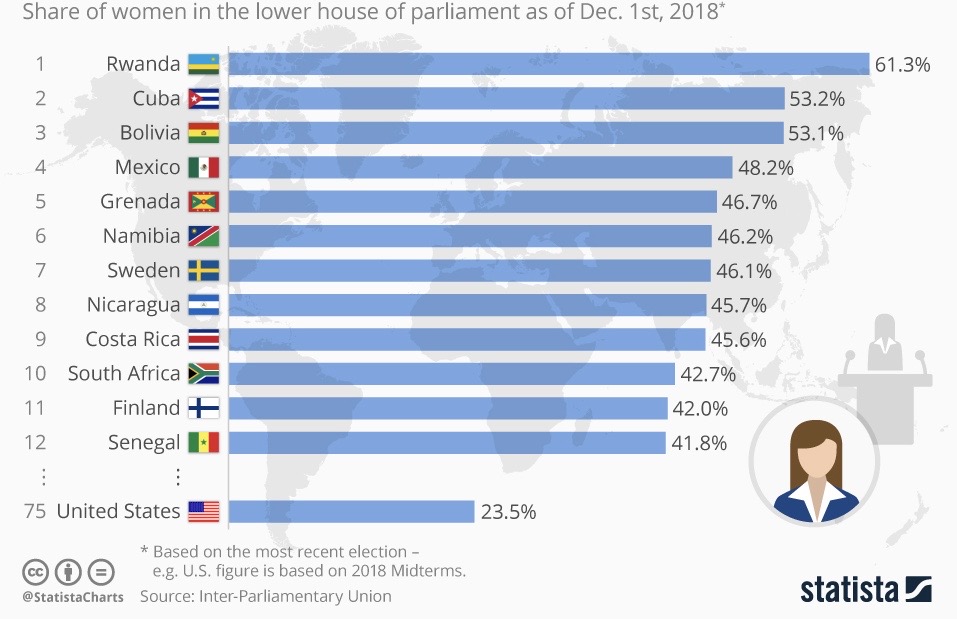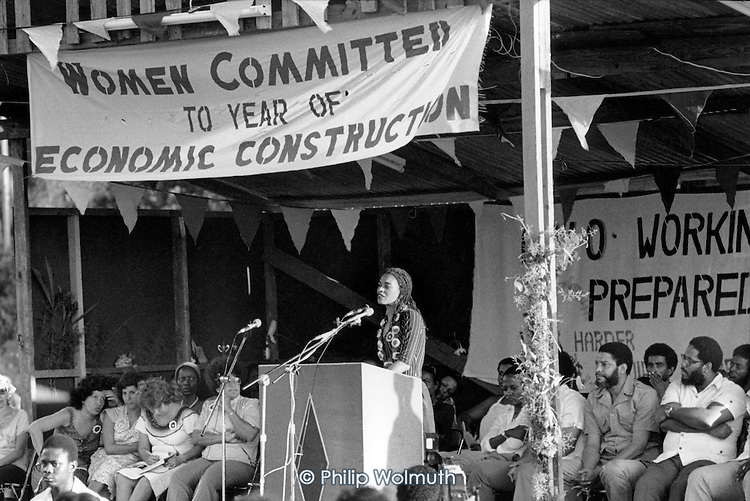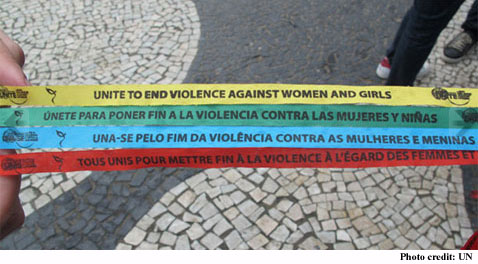|
Getting your Trinity Audio player ready...
|
Reading Time 4 mins
March 8, 2020
On #EachforEqual…
[Valerie Gordan]: #EachforEqual urges me to do my part in the work towards gender equality and strengthens my own sense of who I am and what I can accomplish. It also urges me to do my part in my family and work life as I engage with different genders – challenging others to become their best selves and recognizing achievements as they occur. At the same time, it generates a sense and expectation of support from others, locally and globally for my own efforts. I am encouraged.
Strides In Gender Equity…

[VG]: There have been significant strides in gender equity in Grenada and the wider Caribbean. For example, a quick review of the statistics on access to education at the secondary and tertiary levels in Grenada over the past 50 years will show that girls access and performance have significantly increased and in some cases outperformed boys. The number of women in representational politics – parliament for example – has significantly increased.
However, the pervading cultural value system that keeps women “in service” to men in homes and the incidence of all forms of abuse, especially sexual abuse and domestic violence against women, remains much too high. The number of court cases of this kind is evidence of this. Despite the strides, a very disturbing reality pervades at the core of our societies – homes, villages, and workplaces.
[BDN] During the Revolution (1979-1983) there was a flowering of women’s rights and consciousness resulting in material gains, such as; Maternity Leave Law, Equal Work for Equal Pay, increase in wages and an improvement in working conditions for agricultural workers; yet, many serious problems remained, even among and within the revolutionary leadership as discussed in Phyllis Coard’s book Unchained. Based on your experience as a leader in the Women’s Movement during the Revolution (did you detect such tension and if so) how do you assess this dilemma?

[VG]: My very direct experiences and feelings of the tension far exceeded my ability to “…detect” the tension in the way that hindsight has. Being a product of the very society in which gender imbalance was the order of the day made it almost impossible for me to detect.
As a young Grenadian woman, born and raised in that reality, I definitely felt the long absences of my spouse that I tolerated, despite my discomfort. Which if I did the same would earn his immediate disapproval. How is that for a leader in the Women’s movement at the time. I protested at times, ensured that my chores were done before having to leave the home for work assignments to avoid the conflict, and raised the need for some more balance in the time spent parenting.
However, did I know to characterize that imbalance as “gender” disparity? Of course not. Notwithstanding the fact that my spouse was a leader of the revolution actively involved in promoting the very benefits for the women’s advancement. Classic “tension”?
Propelling Societal Change…
[VG]: Daring to initiate, insist on and ensure the continuation of the conversations and awareness-building regarding sexual and domestic abuse against women, and all the attending factors is definitely a way that women and men can propel the advancement in Grenadian/Caribbean society toward gender equality. It remains a very sensitive issue that touches all levels of society.
In time, advocacy for changes in the laws to address the issues that become front and center in these debates should follow. The laws should also protect gains already made. They continue to lag behind. Creating and sustaining support for victims is another way, whether that be networks for social, emotional and material support or shelter.

[BDN]: Some of your more recent involvement has been around mentoring leadership. What do you believe is the biggest challenge for this present generation of women, do you believe there exists a confidence gap?
[VG]: The prevailing leadership ethos is often far removed from some age-old, time-tested, principle grounded-ness, and actively cultivates values that do not always serve this present generation of young women well. At the same time, it rewards attitudes and behaviors that leave much to be desired, it also punishes those who do not comply with the status quo. So it may not be as much a confidence gap. See how our women choose (are confident enough) to wear carnival costumes way different from what obtained even a decade ago–even with the negative reactions from some circles–flaunting their assets as it were with confidence. It may be more so a sense of expediency in achieving material success, which is often the recognized “status symbol”, albeit at the risk of sacrificing internal peace. A key factor may be that women are not willing to risk the price of “going against the grain”.
Two Critical Facing Issues Grenadian/Caribbean Women…
[VG]: One of the biggest issues facing Grenadian/Caribbean women is finding and sustaining fulfilling relationships in which they find adequate support to raise their children as they see fit. Economic or financial self-sufficiency where they can have ample work-life balance is another.
Beyond the Challenges…
[VG]: Despite the challenges, women have made significant advances and so have their partners. It is very encouraging to see young males much more actively and proudly involved in their children’s upbringing, for example, than in generations before. This augurs well for the future.
The availability of technology enables the sharing of information across boundaries globally, thus learning and mentoring from the example of others. The experience of countries leading in gender parity and the benefits thereof, easily accessible as incentives to others. And so the celebration of International Women’s Day has served women very well across many borders.

Very insightful article! I particularly like your point “One of the biggest issues facing Grenadian/Caribbean women is finding and sustaining fulfilling relationships in which they find adequate support to raise their children as they see fit”. I’m sure that a vast majority of women are able to relate to this statement as this issue is one of the most difficult to transcend, both at the personal as well as economic level. As women, we will continue to make strides in these areas so that we can pass on the baton more carefully to the generations of children whom we raise. Thank you for your contribution in raising awareness on issues facing women, sister Valerie.